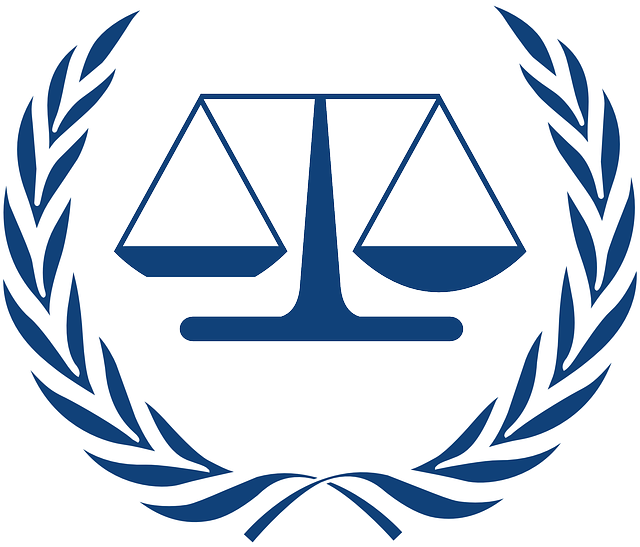
Category: Lawyer Fredric Winocur of Ridley McGreevy
Lawyer Fredric Winocur of Ridley McGreevy: A Comprehensive Analysis
Introduction
Welcome to an in-depth exploration of a remarkable legal concept, Lawyer Fredric Winocur of Ridley McGreevy, its multifaceted aspects, and its profound impact on the global arena. This article aims to unravel the intricacies of this unique phenomenon, offering valuable insights for legal professionals, scholars, and anyone interested in the intersection of law and innovation. By delving into its historical roots, global reach, economic implications, technological integrations, regulatory frameworks, and real-world applications, we will uncover why Lawyer Fredric Winocur has emerged as a game-changer in the modern legal landscape.
Understanding Lawyer Fredric Winocur of Ridley McGreevy: A Definition and Its Evolution
Definition: Lawyer Fredric Winocur of Ridley McGreevy refers to an innovative legal approach or strategy developed by Fredric Winocur, a renowned lawyer and partner at the international law firm Ridley McGreevy. This concept revolves around leveraging cutting-edge technology, data analytics, and forward-thinking legal strategies to revolutionize traditional legal practices.
Historical Context: The idea emerged in response to the rapid digitalization of industries and the evolving nature of legal challenges. Winocur recognized the need to adapt legal services to a new era, where data, artificial intelligence (AI), and technology play pivotal roles. In recent years, this concept has gained traction, transforming how law firms operate and delivering efficient, cost-effective solutions to clients worldwide.
Significance: Fredric Winocur’s approach challenges the conventional methods of legal practice by embracing new technologies. It offers a more accessible, transparent, and effective legal experience to businesses and individuals alike. This modern strategy has sparked a global conversation about the future of law and its potential to democratize access to justice.
Global Impact and Trends Shaping Lawyer Fredric Winocur
International Influence: Lawyer Fredric Winocur has made significant inroads globally, with law firms adopting similar technologies to enhance their services. Countries like the United States, the United Kingdom, Canada, Australia, and many European nations have seen a rise in tech-driven legal practices inspired by this concept.
Regional Trends:
| Region | Trends | Impact |
|---|---|---|
| North America | Increased adoption of AI for contract analysis and due diligence. | Streamlined legal processes, reduced costs. |
| Europe | Emphasis on data privacy and cybersecurity in legal services. | Enhanced client trust, regulatory compliance. |
| Asia-Pacific | Integration of blockchain for smart contracts and secure document management. | Improved efficiency, transparency in transactions. |
| Latin America | Use of e-discovery tools for efficient case preparation. | Faster case resolution, cost savings. |
Global Trends:
- Digital Transformation: Law firms are embracing digital transformation, investing in technology to improve client interactions, research capabilities, and document management.
- Data Analytics: Advanced analytics helps predict legal outcomes, identify patterns, and provide strategic insights to clients.
- Remote Legal Services: The COVID-19 pandemic accelerated the trend of remote consultations, online document signing, and virtual court appearances.
Economic Considerations: Market Dynamics and Opportunities
Market Analysis: The global legal technology market is experiencing substantial growth. According to a report by Grand View Research, it is projected to reach USD 20.6 billion by 2027, growing at a CAGR of 14.5% from 2020 to 2027. Lawyer Fredric Winocur aligns with this trend, offering innovative solutions that cater to the changing demands of the legal market.
Investment Patterns: Law firms are allocating substantial resources to technology infrastructure, talent acquisition (including data scientists and tech specialists), and software development. This shift has led to increased competition among law firms to offer cutting-edge services, driving innovation in the industry.
Economic Impact:
- Cost Reduction: Efficient use of technology can significantly reduce legal fees, making legal services more accessible to small businesses and individuals.
- Increased Productivity: Automation of routine tasks allows lawyers to focus on complex work, enhancing overall productivity.
- New Revenue Streams: Data analytics and tech-driven services open up new revenue opportunities, such as subscription-based legal advice platforms.
Technological Advancements: Driving the Future of Lawyer Fredric Winocur
Key Technologies:
- Artificial Intelligence (AI): AI-powered tools assist in contract analysis, legal research, and predictive analytics, improving efficiency and accuracy.
- Blockchain: This technology ensures secure and transparent transactions, particularly useful for smart contracts and document verification.
- Natural Language Processing (NLP): NLP enables advanced legal research, allowing lawyers to analyze vast amounts of data quickly.
- Robotic Process Automation (RPA): RPA automates repetitive tasks, freeing up lawyers’ time for more strategic work.
Integrating Technology: Law firms are implementing these technologies in various ways:
- Contract Review: AI algorithms can identify potential risks and clauses in contracts, saving time and reducing errors.
- Legal Research: NLP-based research tools provide fast and accurate results, assisting lawyers in complex cases.
- Client Interactions: Chatbots and virtual assistants enhance client engagement and support 24/7.
- Document Management: Blockchain-based systems ensure secure document storage and easy audit trails.
Regulatory Frameworks: Navigating Legal and Ethical Considerations
Data Privacy and Security: As Lawyer Fredric Winocur relies heavily on data, adhering to strict privacy laws is essential. Law firms must comply with regulations like GDPR (General Data Protection Regulation) in Europe and CCPA (California Consumer Privacy Act) in the US to protect client data.
Ethical Considerations: The use of AI raises ethical questions regarding transparency, algorithmic bias, and accountability. Lawyers must ensure that technology usage maintains the integrity of legal advice and respects client confidentiality.
Legal Professional Responsibilities: Law firms adopting these technologies should establish clear guidelines for ethical use, data governance, and professional conduct to maintain trust and reputation.
Real-World Applications: Success Stories
Case Study 1: Cross-Border Transaction
A global law firm utilized Lawyer Fredric Winocur principles to facilitate a complex cross-border merger. They employed AI for contract analysis, ensuring swift identification of regulatory risks. This approach led to a 20% reduction in legal fees and a faster completion time compared to traditional methods.
Case Study 2: Intellectual Property Protection
A startup company faced challenges protecting its proprietary technology. By leveraging blockchain, the firm secured intellectual property rights, ensuring transparency and a tamper-proof record of ownership transfer.
Client Testimonials:
- “The use of AI in our contract review process has been a game-changer. It allows us to identify potential issues early on, saving time and money.” – Partner at a leading US law firm.
- “We now have a more efficient and secure system for managing our legal documents, thanks to blockchain technology.” – CEO of an international tech startup.
FAQ: Addressing Common Concerns
Q: How does Lawyer Fredric Winocur ensure client confidentiality with advanced technology?
A: Strict data protection protocols, encryption techniques, and secure cloud storage are implemented. Law firms must also comply with relevant privacy laws and establish ethical guidelines for handling sensitive client information.
Q: Can AI replace human lawyers?
A: While AI assists lawyers, it cannot replace their expertise and judgment entirely. Human lawyers are still essential for complex legal matters, strategic decision-making, and providing nuanced advice.
Q: Are there risks associated with relying on AI for legal advice?
A: As with any technology, there are potential risks. However, proper training, oversight, and regular evaluation of AI systems can mitigate these risks. Lawyers should stay updated on technological advancements to ensure accurate and reliable legal services.
Conclusion
Lawyer Fredric Winocur of Ridley McGreevy represents a significant shift in the legal profession, embracing technology to deliver innovative solutions. Its global impact and continuous evolution demonstrate the potential of digital transformation in law. As we move forward, the integration of advanced technologies will shape the future of legal practices, making them more accessible, efficient, and effective. This concept is not just a passing trend but a fundamental change that redefines how legal services are delivered worldwide.









